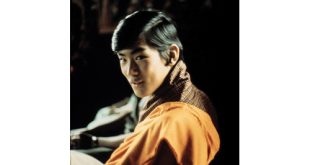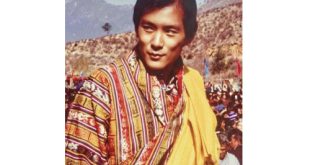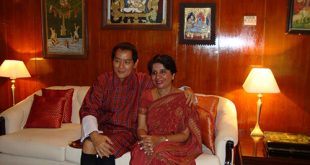The National Education Policy (NEP) was developed in line with the Royal Decree issued by His Majesty The King on 17th December 2020, which called for urgent reforms in Bhutan’s education system.
The Ministry of Education and Skills Development (MoESD) has officially published the policy after extensive consultations and analysis of past policies.
Under the NEP, the minimum entry age for Pre-Primary (PP) is six years, and the school year will have at least 180 academic days, with adjustments for seasonal and local factors.
The first three years of primary education (up to age eight) will ensure a smooth transition from ECCD, focusing on literacy, numeracy, and early exposure to ICT, sciences, arts, climate change, and health, while integrating values education and socio-emotional learning.
At the secondary level (Grades VII-X), students will develop advanced skills in languages, mathematics, sciences (including climate change), ICT, social studies, Rigzhung, TVET, and career education, preparing them to make informed academic choices by Grade X.
In Grades XI-XII, students can specialize in Arts, Commerce, Science and Technology, Rigzhung, and TVET, with flexibility to pursue individual interests.
A key provision of the NEP is free education up to the Grade X, including Early Childhood Care and Development (ECCD) programs, primary education, and secondary education. MoESD states, “There will be free education up to the tenth standard for all children of school-going age, in line with constitutional provisions.”
Schools may only collect fees approved by MoESD, which will also provide free learning materials based on curriculum and location.
Early childhood development is a central focus of the reforms. ECCD centers are expected to provide nurturing, inclusive, and play-based environments for children from birth to eight years, supporting their physical, cognitive, social, and emotional growth. Programs for ages three to six will cover STEM, arts, language, values, and social-emotional learning.
Schools will also provide facilities and support for children with special needs, including specialized SEN schools with trained teachers and appropriate resources. Educators, parents, and specialists will develop Individualized Education Plans (IEPs) to monitor each child’s progress, while National Sign Language and other educational tools will continue to support integration and learning.
Educators will receive training in inclusive teaching and early intervention, and new ECCD centers will be established in underserved areas to ensure equitable access.
Student assessment will also undergo reform, moving away from a system focused solely on memorization and recall of facts. According to the policy, starting from next academic year, Bhutan will align its education curriculum with Cambridge standards, ensuring that student assessment focuses not just on memorization, but on understanding and the ability to apply knowledge in real-world situations.
The policy introduces flexibility for board examinations, allowing students who narrowly fail in one compulsory subject to re-sit that examination if they have shown exceptional performance in the other two subjects.
Technical and Vocational Education and Training (TVET) has been given new importance under the NEP. Courses will be designed in line with national economic priorities and developed in consultation with employers. Moreover, the TVET qualifications will be nationally and internationally recognized to ensure Bhutanese graduates are prepared for opportunities at home and abroad.
The NEP also recognizes the needs of out-of-school children and youth, proposing measures to reintegrate them into the formal education system or offer alternative learning pathways through skills development and training.
Mental health and well-being services will be strengthened through collaboration with healthcare professionals and community organizations, and parents are expected to play a stronger role in supporting children’s learning and well-being.
The policy, approved by the Cabinet last year, which, according to an official from MoESD, is the final National Education Policy. This policy’s vision is to make education inclusive, equitable, and future-ready, preparing children and youth with the knowledge, skills, and values needed to thrive in a rapidly changing world.
 The Bhutanese Leading the way.
The Bhutanese Leading the way.




